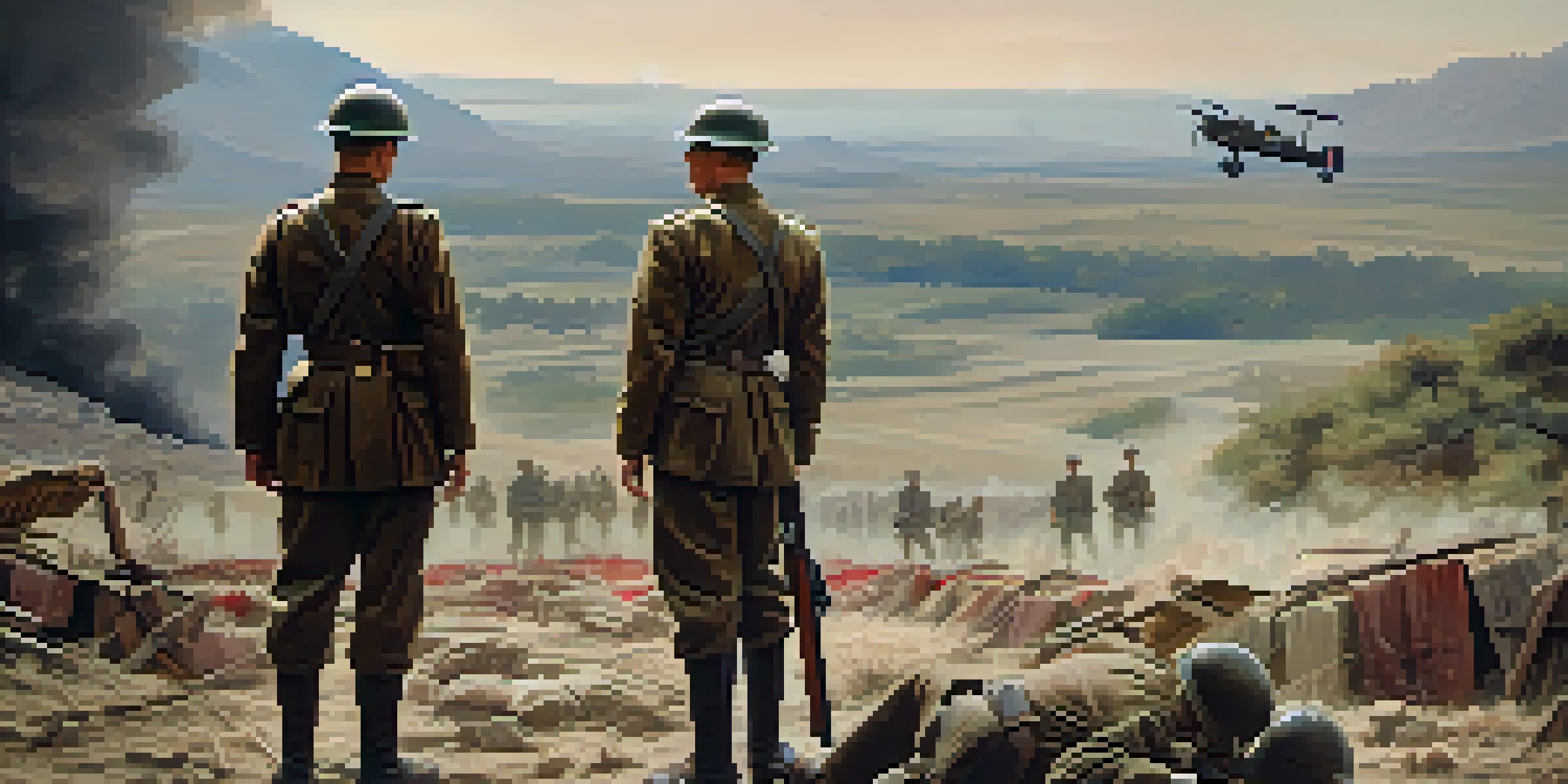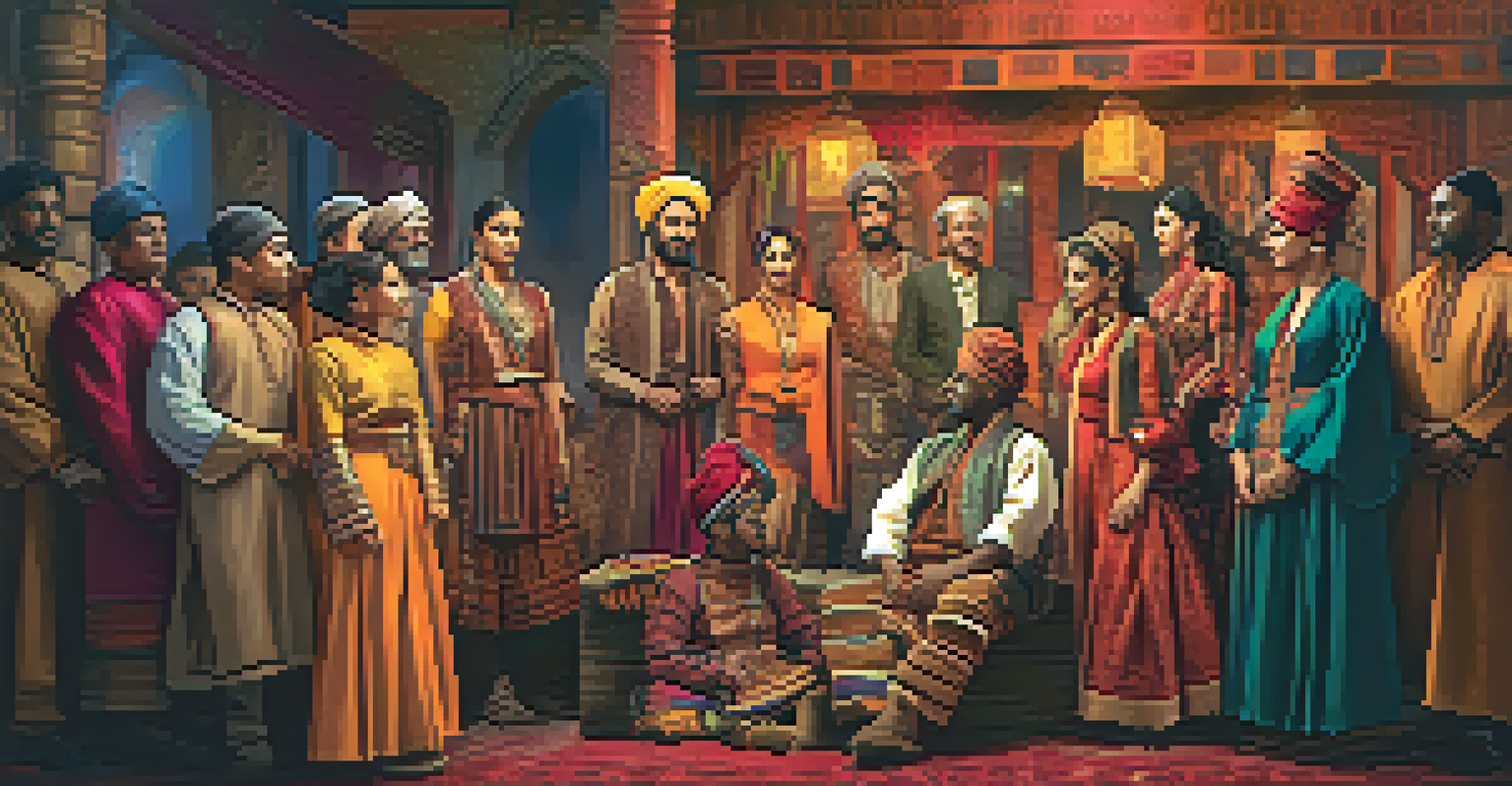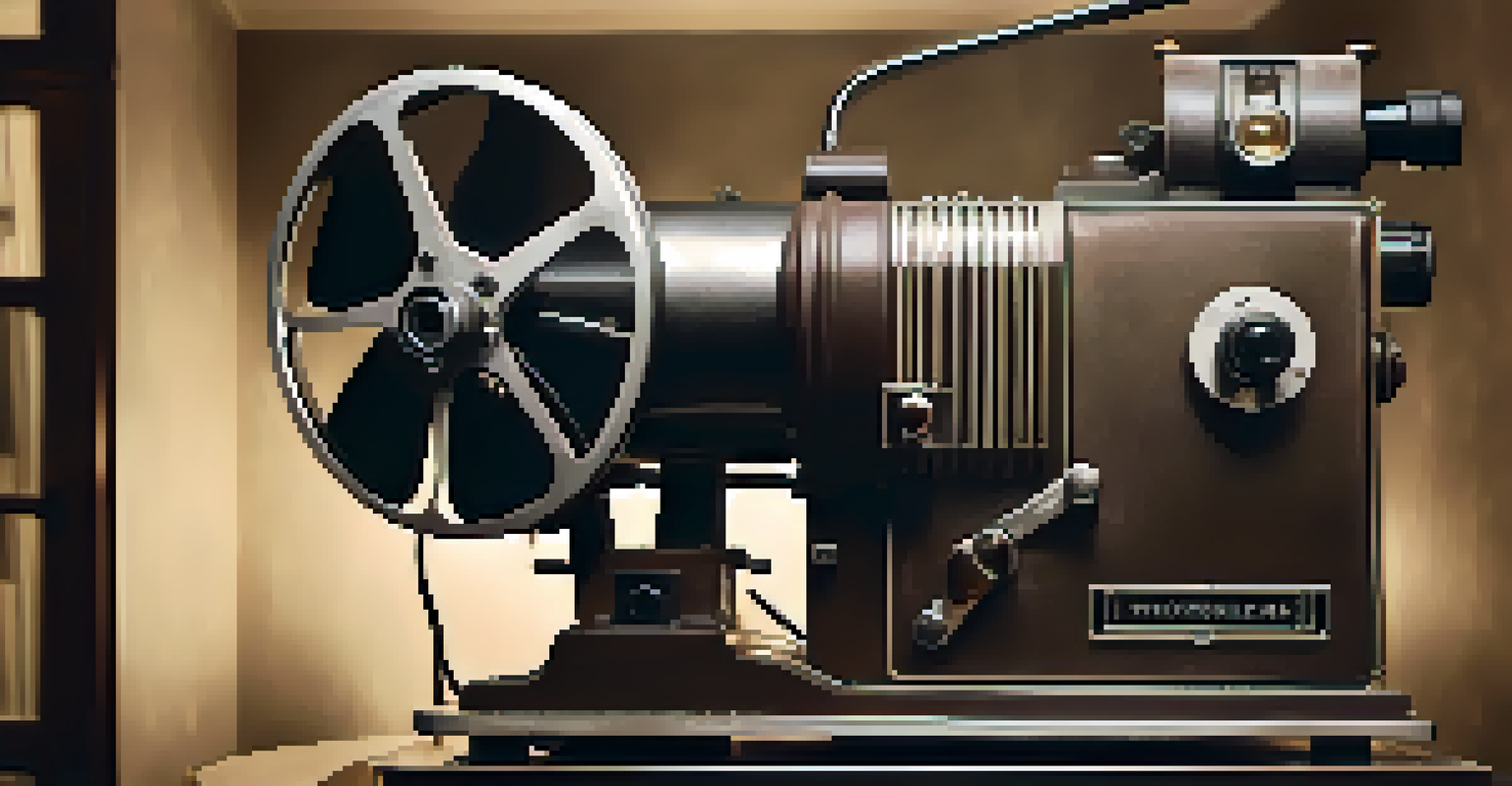Hollywood's Historical Narratives: A Critical Examination

The Power of Storytelling in Hollywood
Hollywood has long wielded the power of storytelling, shaping cultural narratives that impact how history is perceived. Through film and television, the industry presents stories that resonate with audiences, often creating an emotional connection to historical events. This storytelling can elevate certain narratives while overshadowing others, influencing public understanding and memory of the past.
Storytelling is the most powerful way to put ideas into the world today.
For example, films like 'Saving Private Ryan' and '12 Years a Slave' offer immersive experiences that highlight specific aspects of history, often leaving viewers with a distorted sense of the complete story. The cinematic lens can render complex historical events into digestible narratives, but in doing so, it risks oversimplification and misrepresentation. As viewers, we must recognize that these portrayals are crafted with intent and can carry significant weight in shaping societal views.
Moreover, the emotional impact of film can lead to a collective memory that may not align with factual events. The ability of Hollywood to evoke empathy and understanding is a double-edged sword; while it can foster awareness, it may also perpetuate myths or inaccuracies that linger long after the credits roll.
The Role of Historical Accuracy in Film
Historical accuracy in film is a contentious topic, often sparking debates among historians and filmmakers alike. While some argue that creative liberties are necessary for storytelling, others believe that films should strive to represent history as faithfully as possible. This tension raises questions about the responsibility of filmmakers to their audiences and to the historical figures and events being depicted.

Take, for instance, the film 'The Imitation Game,' which dramatizes the life of Alan Turing. While it sheds light on his contributions to computer science and the war effort, certain aspects of his life and the broader context of World War II are simplified or altered for dramatic effect. Such choices can lead to misunderstandings about the complexities of historical figures and the events they were part of.
Storytelling Shapes Historical Memory
Hollywood's storytelling influences public perceptions of history, often creating emotional connections that can distort the factual narrative.
Ultimately, the balance between entertainment and educational value is delicate. Filmmakers must navigate the line between creating engaging narratives and providing a truthful representation of history, prompting us to question whether the goal should be to inform or to entertain.
Cultural Representation and Historical Narratives
Cultural representation in Hollywood has evolved over the years, reflecting changing societal values and the push for inclusivity. However, many historical narratives still fall short in accurately representing the diverse cultures that have shaped history. This lack of representation can lead to a narrow understanding of the past and perpetuate stereotypes.
History is written by the victors.
For instance, films like 'Apocalypto' and 'The Last Samurai' have been critiqued for their portrayal of indigenous cultures through a Western lens, often sidelining authentic voices and perspectives. Such portrayals can reinforce existing power dynamics, as they prioritize a specific narrative while marginalizing others. The result is a skewed representation of history that fails to capture the richness of human experiences.
As audiences become more aware of these issues, there is a growing demand for films that offer a more balanced representation of history. This shift challenges filmmakers to consider whose stories are being told and to include voices that have been historically overlooked, fostering a more nuanced understanding of the past.
The Influence of Genre on Historical Narratives
The genre of a film significantly influences how historical narratives are presented and perceived. Different genres, such as drama, action, and documentary, each bring unique storytelling techniques that can alter the viewer's interpretation of events. For example, a historical drama may focus on character development and emotional arcs, while a documentary emphasizes factual accuracy and critical analysis.
Consider the difference between a film like 'Gladiator,' which blends historical fact with fantasy, and a documentary like 'The Fog of War,' which examines the complexities of war through interviews and archival footage. The former may prioritize entertainment and spectacle, whereas the latter aims to educate and provoke thought. This genre distinction shapes not only the narrative but also the audience's engagement with the material.
Accuracy vs. Entertainment in Film
The tension between artistic license and historical accuracy challenges filmmakers to balance engaging narratives with truthful representations of events.
As viewers, understanding the genre's influence on historical narratives can help us critically assess the stories being told. Recognizing the intentions behind different genres enables us to appreciate their unique contributions while remaining mindful of potential biases and inaccuracies.
Hollywood's Impact on Collective Memory
Hollywood plays a pivotal role in shaping collective memory, influencing how societies remember and interpret historical events. The images and stories presented in films can become ingrained in the public consciousness, often overshadowing academic histories. This phenomenon raises important questions about the reliability of cinematic portrayals in shaping our understanding of the past.
Take, for example, films like 'Schindler's List,' which have had a profound impact on how the Holocaust is remembered. While such films can educate and raise awareness, they also risk becoming the primary source of information for many viewers, potentially leading to a simplified understanding of complex historical realities. This reliance on film as a historical source can create a distorted collective memory.
As we engage with Hollywood's narratives, it is crucial to complement cinematic experiences with historical research and education. By doing so, we can foster a more nuanced understanding of history that transcends the limitations of film.
The Evolution of Historical Narratives in Film
The evolution of historical narratives in film reflects broader societal changes and attitudes toward history. Earlier films often glorified war and heroism, presenting a one-dimensional view of historical events. However, as audiences have become more discerning, filmmakers are increasingly challenged to portray history with greater complexity and depth.
For instance, modern films like 'The Pianist' and 'Dunkirk' highlight the human cost of war, focusing on personal stories and the chaos of conflict rather than simply celebrating victories. This shift illustrates a growing recognition that history is not just about monumental events but also about the experiences of individuals who lived through them. By humanizing historical narratives, filmmakers can create more relatable and impactful stories.
Evolving Cultural Representation
As societal values shift, there is a growing demand for more inclusive and accurate portrayals of diverse historical narratives in Hollywood.
As we look to the future, it will be interesting to see how Hollywood continues to adapt its historical narratives in response to evolving cultural conversations. The demand for authenticity and diverse perspectives will likely shape the types of stories being told, paving the way for a richer understanding of history.
Challenges in Retelling Historical Events
Retelling historical events poses unique challenges for filmmakers, especially when it comes to balancing accuracy with narrative cohesion. Complex events often require simplification for storytelling purposes, which can lead to omissions or alterations that impact the overall understanding of history. This tension raises ethical questions about representation and the potential consequences of misrepresentation.
For example, films that tackle sensitive topics, such as slavery or genocide, must navigate the fine line between respectful portrayal and sensationalism. The challenge lies in presenting these narratives in a way that honors the experiences of those involved while also engaging the audience. A failure to strike this balance can result in backlash and criticism from both historians and viewers.

Ultimately, filmmakers must approach historical narratives with a sense of responsibility and awareness of their impact. By acknowledging the challenges inherent in retelling history, they can strive to create works that resonate authentically with audiences while fostering a deeper understanding of the past.
The Future of Historical Narratives in Hollywood
As we look toward the future, the landscape of historical narratives in Hollywood is bound to evolve. With advancements in technology and a growing emphasis on authenticity, filmmakers have unprecedented opportunities to explore diverse stories and perspectives. This shift opens the door for a more inclusive representation of history that reflects the multifaceted nature of human experiences.
Moreover, the rise of streaming platforms has changed the way historical narratives are consumed, allowing for more niche stories to reach broader audiences. This democratization of content means that lesser-known historical events and figures can find their place in the cinematic landscape, enriching the overall narrative tapestry. As audiences seek out diverse voices and stories, the demand for authenticity will likely shape the future of filmmaking.
In this dynamic environment, it is essential for filmmakers to remain committed to responsible storytelling. By prioritizing accuracy, inclusivity, and respect for historical narratives, Hollywood can contribute to a richer understanding of history that resonates with audiences for generations to come.